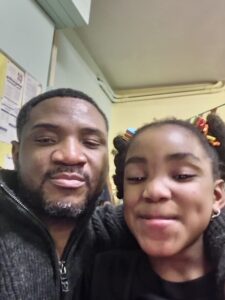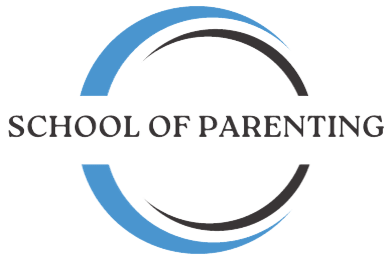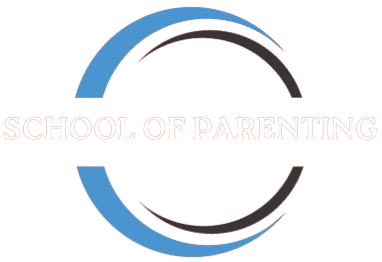Growing up, I often wondered why my parents made certain choices when raising me. From strict bedtimes to unexpected lessons on discipline, there was a method to what sometimes felt like madness.
Now, as a parent myself, I find myself at a crossroads, trying to balance the wisdom I inherited with the parenting plan I want to create. Like many of us, I’ve realized that parenting isn’t about winging it; it’s about being intentional.
If you follow me closely, you’ll know that I talk about intentional parenting a lot. So, what does that mean?
But before that, very quickly, let’s see the dictionary meaning of the word intentional. It simply means, done on purpose, deliberate, conscious, done with full awareness of what one is doing.
Whether or not you loved the way you were raised, an intentional parent makes conscious decisions about how to raise their children differently, they understand the time and seasons of their life.
This kind of parent doesn’t leave things to chance with sayings like, “A child that will turn out well will turn out well,” or “What will be, will be.” Nor do they subscribe to the mindset of, “I can’t k^ll myself.” Instead, they are committed to seeing their children grow into healthy and mature adults. They are confident in their parenting journey and trust their process without fear of the future.

Today, we’re going to explore the ten commandments of intentional parenting. I call these the rules and principles every parent needs to know to be successful in raising their child. We will discover what they are and how they can help us become better parents. These are the ten most important things every parent should be aware of.
As I always say, no matter where you live or your skin colour, the principles of parenting are universal but different methodology.
Let’s explore these ten timeless rules that can guide every parent toward raising happy, healthy, and thriving children.
- Parenting Is First About You
This is you asking yourself first, “Who am I? How was I raised?”
Do I like the way I was raised?
Do tears drop from my eyes whenever I’m talking about how I was raised?
Who raised me? my parents, aunties, or uncles?
How do I feel about the way I was raised?
If I have chance to change anything about how I was raised, what would it be?
Let’s pretend I’m a child now, how would I loved to be raised?
Say I’m given an opportunity to ask for anything I want, what would that be?
I asked this same question in one of my parenting sessions, and in tears a woman said she would want to become a child and start all over again.
Your ability to answer all of these questions will put you in a better shape. It will help you understand the healing and the training you need. The truth is, if you don’t heal from childhood trauma, you will not be able to raise a child effectively. You will find yourself raising your children the same way you were raised or it will be the other way round.
Once this healing is done, then you ask yourself questions like;
“Why did I choose to have this child?
How do I want to raise them?
What do I need to raise this child?”
This is when you start seeking knowledge, training, and skills to help you raise your child.
Also, do you know that your first responsibility as a parent is to look after yourself? It is not a luxury or selfishness. It’s you doing what you have to do. How’s your health and well-being? Do you feel stressed, pressured, or tired all the time? What do you do for self-care? What do you enjoy doing? Is it swimming, exercising, reading, hanging out with friends, or time alone? Identify it and go for it. Doing all of this is you putting yourself first.

- My Child Does Not Belong to Me
I understand that you gave birth to them, you carried them in your tummy for nine months, some eight months or thereabout. I understand that you made all the sacrifices, but the truth remains, they don’t belong to you. You may be wondering, “Who then do they belong to?” They belong to God, their creator, and their success is not defined by US but by God. The direction of your child’s life is not set by you or them, but rather it is set by God and coached by you, the parents.
God gave us guidelines, a manual, principles to follow. This we did not manufacture ourselves but was given through the scriptures, that is, the Bible. It’s God’s story, and who is God? He’s our daddy, and the Bible is our parenting manual. It shows us that if we do this, we will get that. I know some of us read the Bible as a novel, but it’s actually a manual. Everything we need to parent is in the Bible.
Did you notice the way God parents his son, Jesus? One of the things He does is affirm him. “This is my beloved son, in whom I’m well pleased.” He was so proud of him, even before he started performing miracles. Do you shame, compare, or make your child feel less of themselves instead of affirming them?

- Every Child Is a Child
Every child is a child, and let a child be a child. Every child will exhibit certain behaviour based on their developmental stage irrespective of their skin colour, home, environment, or location. For instance, a two-year-old might climb on a table just after you’ve warned them to be careful. A three-to-five-year-old may bombard you with questions, and a teenage child may seek privacy and keep to themselves. These behaviors are universal among children, but the difference lies in how we respond to them.
Also, do not take childhood away from a child in the name of parenting. The makeup you apply, the wigs and nails you fix, or the adult hairstyles you give them, all these actions are taking childhood away from your child. Dress them like a child, not an adult. We often confuse children with adults due to such practices, and when children are encouraged to look older, they may act out, making it difficult to correct later. I once had to speak to a friend about the makeup she used on her daughter, telling her that this was not love but detrimental to her child’s development.
This practice robs them of their childhood, which is the shortest phase of their life. Children should be allowed to play, jump, laugh, splash, make a mess, paint, behave and look like a child. Some parents might not allow this because they want a clean house, but this comes at the expense of the child’s development. Creating memories and joy in their childhood through play, dancing, singing, and laughing is crucial is you letting a child be a child.
When two of your children are playing and one says, “I had it first,” and the other says no, I had it first, before you know it, they’re both crying and dragging whatever it is that they’re dragging. What do you do as a parent? scold the older child? Without realizing he or she is also a child? Avoid giving excessive responsibilities that might overwhelm them so you don’t end up taking childhood away from them.

4. Every Mistake Is a Learning Opportunity
While authoritarian parents believe a child must be punished or suffer pain to teach them a lesson, a permissive parent misses the opportunity to help their children learn from that mistake. A balanced parent, however, believes that their child’s mistakes are an opportunity to help their child learn. They understand that their child is in the process of learning, so they use the mistake to promote learning.
What about us, parents?
In this journey of parenting, we will make loads of mistakes.
You know why?
Because we are human. But we must understand that every mistake is a learning opportunity to become better on a daily basis. How do we achieve this? By constantly reflecting on our journey and asking ourselves. What worked well today? What didn’t work? And what can I do better next time?

- Love Your Child Unconditionally
This is the highest form of love and the hardest love to give. The thing is, if your child cannot come to you to tell you when they have done wrong or the unimaginable, it means something is wrong with your parenting. You should reach a point where your child comes to you to share anything, good or bad without fear of condemnation.Sometimes, the fear is not in the child but in your reaction. For instance, if your son tells you they have gotten someone pregnant, your blood pressure might rise immediately. Some of you, the way you’ll jump will from your chair and scream might make your child to stop telling you things, leaving you wondering why they are not talking to you. For some parents, this might even be the end of that relationship. Some will kick their child out of the house while some might go as far as disowning their child. Dear parents, unconditional love means looking into your child’s eyes and saying, “I love you, and there’s nothing you can do to make me love you less.”

5. You Are a Role Mode
The term “role model” means a person who serves as an example to others by influencing them. For your children, you’re their first influence.
They watch everything you do, whether good or bad. That’s why children often copy a lot. What you say, how you talk to people, your eating habits, and your lifestyle, all these are being observed by your children.
Also, who are your circle of friends?
What about their teachers and who they are following online?
All of these are great influences on your children, but the most important influence is YOU, the parents. As an intentional parent, you become very conscious of certain things because your children are watching and learning.
![]()
![]()
![]()

- Be a Present Parent
Time is the greatest resource we have as parents. It is a resource given to us by God. As a parent, from the moment you realize you’re pregnant, time starts counting, conversation with the child begins, prayers, preparation starts and continues until they are born. When they are born, you see them dirty, crying, and hungry.
You clean them up, feed them, and attend to them. Doing all these things is spending time. It is when you spend time with your child that you get to know them and take advantage of teachable moments. Observing, joking, eating together, playing, and watching movies together are moments where real, life-changing conversations take place.
Always remember that they measure love by the amount of time you spend with them. There was a teenage child whose mother felt was not listening and wanted me to talk to him.
We booked a meeting, and upon meeting, the child said, “My mum? She’s just there. All she does is go to work, come back, sleep, eat, go to work again, day in and day out.” He said it with a pained voice. Mind you, she’s a single parent. I didn’t need anyone to tell me that this child’s need for relatedness had not been met.
He wants to feel love and loved in his own way. He wanted to feel seen, heard, valued, and to belong. Again, sometimes, they see us as perfectionists because they do not see our struggles, tears, or frustrations, as we do not mention them because we’re not spending time with them. Thus, they see us as perfect parents and struggle to manage their own issues.
Being a present parent will also help your child give you feedback on what is bothering them or what you’re not doing right. Sometimes you think they’re fine until you hear it from them. For example, my daughter asked me last year, “Mummy, why does Golden have pack lunch at the nursery and I don’t?” Every time you pack lunch for Golden. If we weren’t spending time together, I would not have known this. This gave me the opportunity to explain to the reason.
Being a present parent requires sacrifice. You have to give up some things. You must be there for them. You can’t be a parent if you’re not willing to sacrifice.

- Set Rules and Principles
Dear parents, there is no intentional parenting without rules and boundaries in place. The best gift you can give your child is setting boundaries. No child will thrive without them.
What ruins a child is not what you teach them but the little things you fail to teach. If you let your child, get what they want all the time, speak rudely, eat whatever they want without caution, and have no assigned responsibilities, you are not helping them.
You cannot leave your domestic staff to do everything for your children. Your child should know their personal and specific responsibilities.

- Discipline Not Punishment
Dan Siegel, author of “The Whole-Brain Child,” says, “Too often we forget that discipline means really to teach, not to punish. A disciple is a student, not a recipient of behavioral consequences.”
Punishment is a response to challenging behavior. Challenging behaviors occur because your child does not have the skills to deal with the situation and behaves inappropriately.
Instead of thinking about how to help your child behave better, you may want them to suffer.
Inflicting pain or seeking revenge does not lead to positive behaviour. You might justify it with sayings like, “Spare the rod and spoil the child.”
Even with such punishment, children may not change because learning is not taking place. An intentional parent responds instead of reacting, they seek to understand the root cause of misbehavior, and they know how best to help the child behave better.

- Come in Twos—Father and Mother Must Be on the Same Page
It takes two to tangle; it took both of you to bring that child into the world, so it takes both of you to raise them. Parenting is not for mothers or fathers alone but for both parents.
In fact, fathers play a significant role in raising a child. “Being an involved parent takes time and is hard work. It often means rethinking and rearranging your priorities and sacrificing what you want to do for your child. Be mentally, spiritually, socially, emotionally, and physically present for your child.”
Being involved does not mean doing your child’s homework. Remember that “Homework is a tool for teachers to know whether your child is learning or not,” Steinberg tells WebMD. “If you do the homework, you’re not letting the teacher know what the child is learning.”
Also, we don’t parent in solitude; we parent as a community, hence the saying, “It takes a village to raise a child.” There’s nothing like “me, myself, and I.” That’s one thing I admire about African culture. we are community-oriented.
Consider the people in your circle, your neighbors, friends, and family members.
Do they share your parenting values?
What are you doing about it? or you can get them to learn parenting as you so you’re all on the same page.
Remember, you’re not a tree; you can as well leave and find another community if you don’t feel comfortable.

In conclusion
I’d encourage you to go through these points, reflect on the ones you need to improve, and actively implement them in your daily parenting. Remember, parenting isn’t a destination; it’s a journey, an evolving and continuous process.


